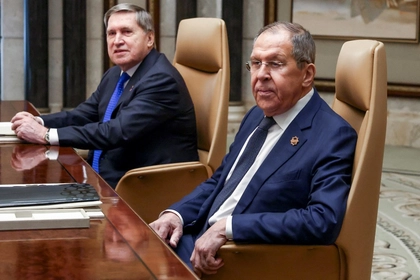Apartheid and racist laws à la russe
In a Telegram post picked up by Echo, Kirill Martynov, editor-in-chief of Novaya Gazeta Europe, describes the decision as a fatal attack on civil rights:
JOIN US ON TELEGRAM
Follow our coverage of the war on the @Kyivpost_official.
“On 30 November 2023, the idea of restricting citizens' rights just because of who they are was incorporated into the legal model of the Russian Federation. Now you no longer even have to be involved in a political movement or be a member of an organisation for the state to ostracise you. If gays are a priori members of an extremist movement, any other group of people can be declared extremists too. Like the apartheid regime in South Africa and the Nazi Nuremberg laws, the Supreme Court's decision takes away people's rights simply because they exist.”
Symptom of a terminally ill regime
Journalist Stanislav Kucher sees the move as a sign of weakness. He comments on Facebook:
“The ban on the 'LGBT movement' (which legally speaking doesn't even exist) is a blow to the safety of certain people who already have a hard time in Russia. Of course, this is a terrible hypocrisy - especially given the pardoning of murderers and psychopaths in return for their participating in aggression against a neighbouring country. But it is also a phenomenal act of self-exposure and degradation - and not the strengthening of a flawed system that many fear it could be. Historians will examine this step as one of the signs and catalysts for the inevitable end of such regimes.”

Putin’s Aides Reject Ceasefire, Call It a ‘Ploy’
Anyone can be targeted
La Stampa fears a witch hunt:
“Not even countries like Iran or Uganda, where 'aggravated homosexuality' is punishable by life imprisonment or the death penalty, have come up with the Kremlin's idea of potentially criminalising anyone who is not explicitly homophobic. The decision to categorise the LGBT movement as 'extremist' doesn't just affect homosexuals. Activists, journalists, sympathisers, lawyers - charges can be brought against anyone who wears a rainbow pin or raises their voice in defence of queer people. Rumours are already circulating in Moscow about lists of prominent homosexuals and activists against whom arrest warrants are to be issued.”
In search of the enemy within
This is a purely diversionary tactic, Gazeta Wyborcza is convinced:
“Why have the Russian authorities started to actively crack down on LGBTQ people? According to Russian human rights activists, the reason is obvious: the Kremlin is trying to mobilise society against an 'internal enemy' and thereby distract Russians from the war in Ukraine.”
You can also highlight the text and press Ctrl + Enter











